When I consider life, it is all a cheat. Yet fooled with hope, people favor this deceit.
JOHN DRYDENThey say everything in the world is good for something.
More John Dryden Quotes
-





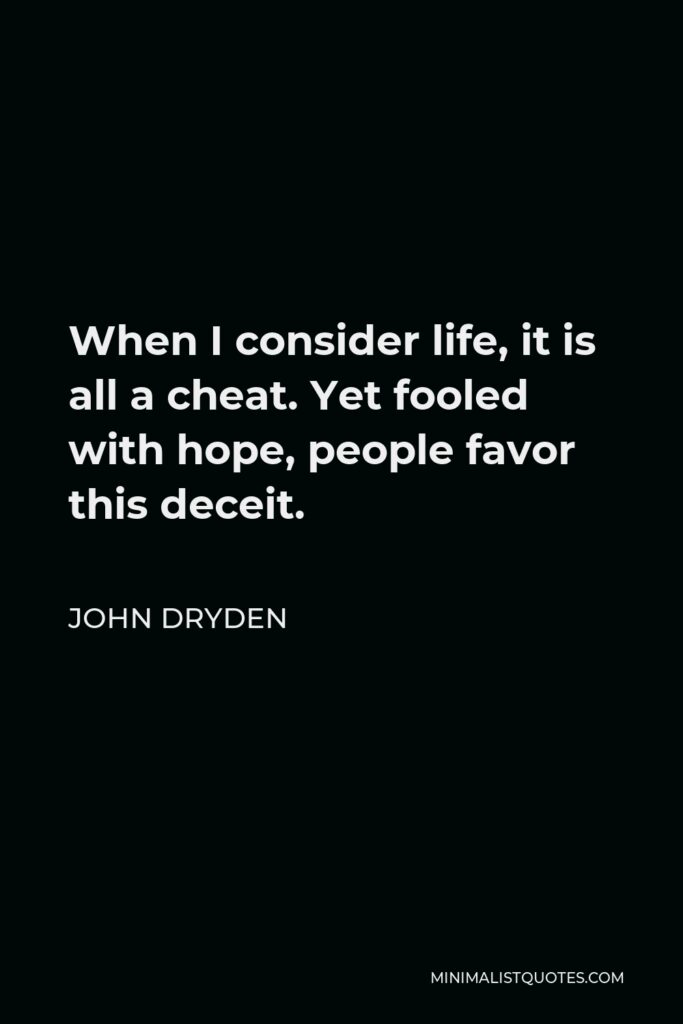

-







Great souls forgive not injuries till time has put their enemies within their power, that they may show forgiveness is their own.
JOHN DRYDEN -





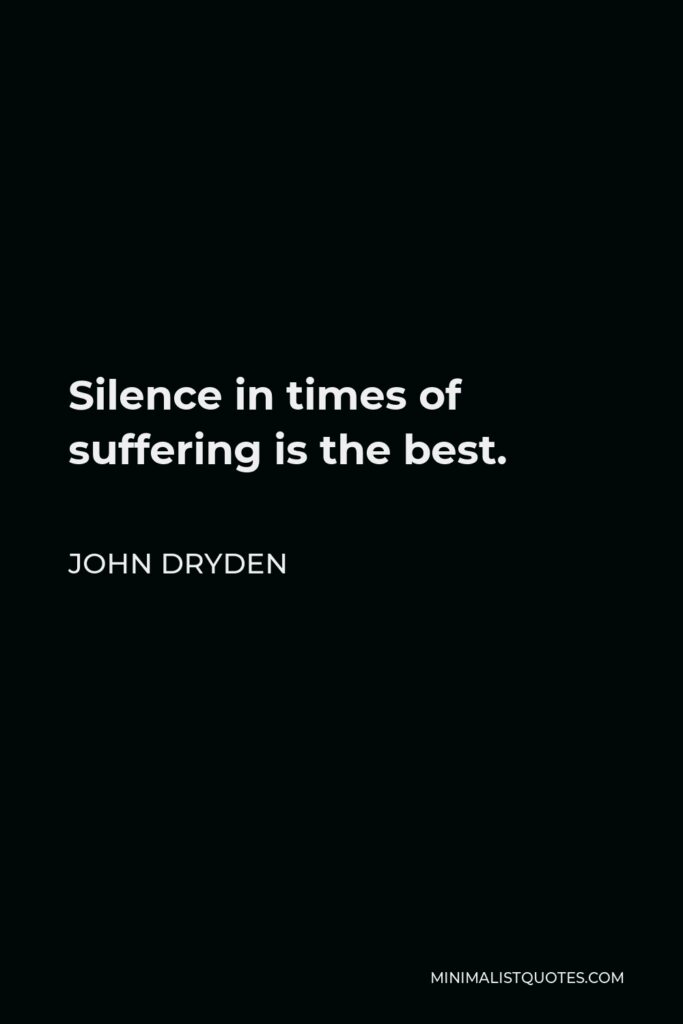

Silence in times of suffering is the best.
JOHN DRYDEN -





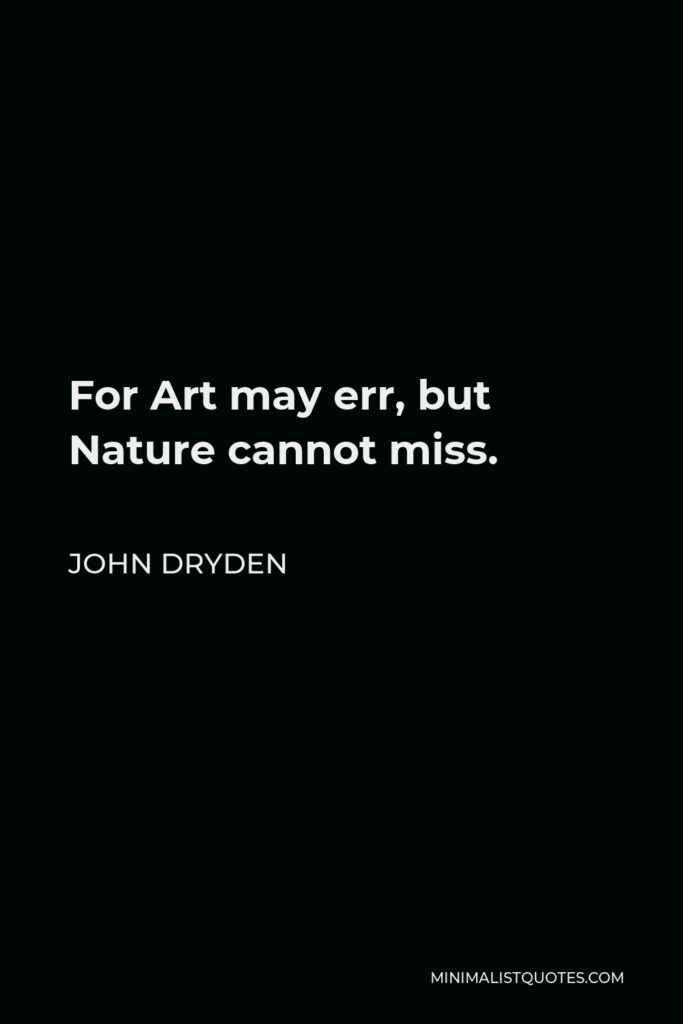

For Art may err, but Nature cannot miss.
JOHN DRYDEN -







Every language is so full of its own proprieties that what is beautiful in one is often barbarous, nay, sometimes nonsense, in another.
JOHN DRYDEN -







Men’s virtues I have commended as freely as I have taxed their crimes.
JOHN DRYDEN -





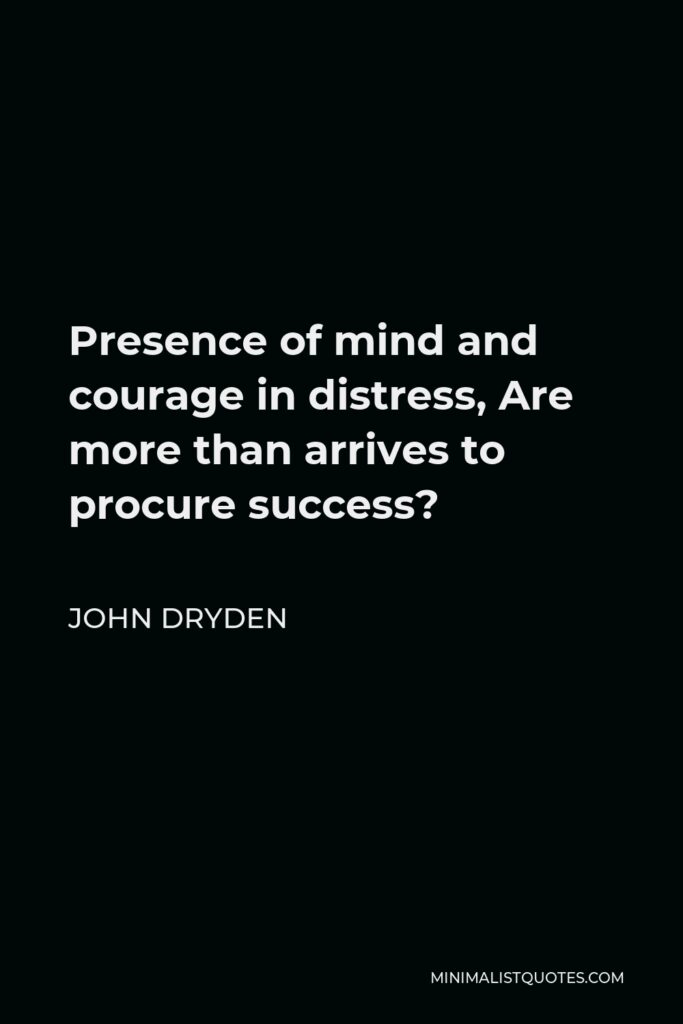

Presence of mind and courage in distress, Are more than arrives to procure success?
JOHN DRYDEN -





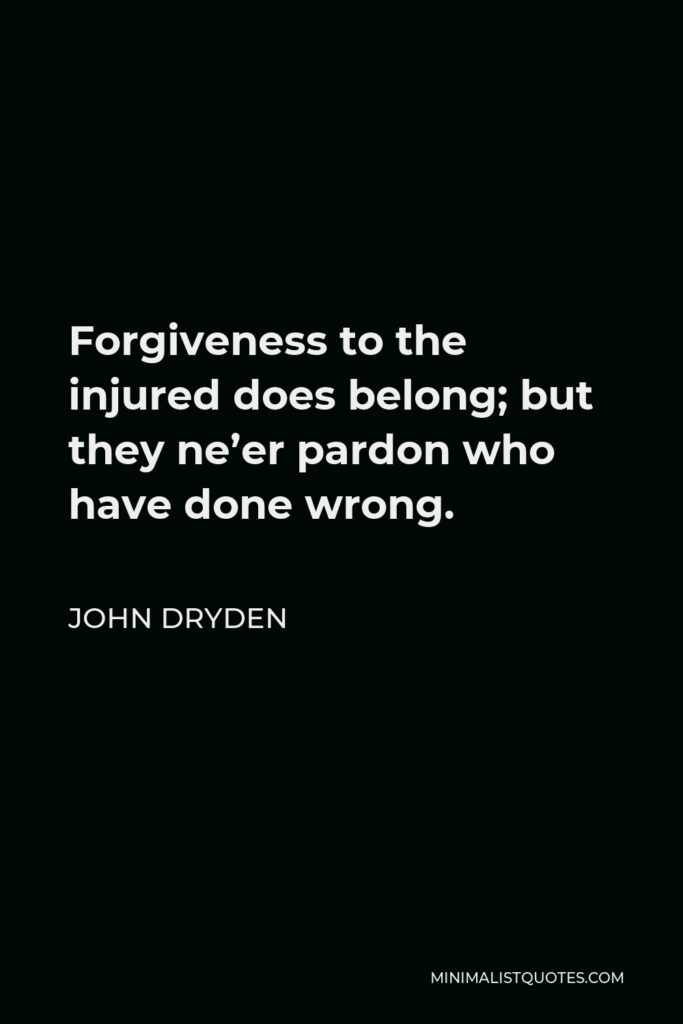

Forgiveness to the injured does belong; but they ne’er pardon who have done wrong.
JOHN DRYDEN -





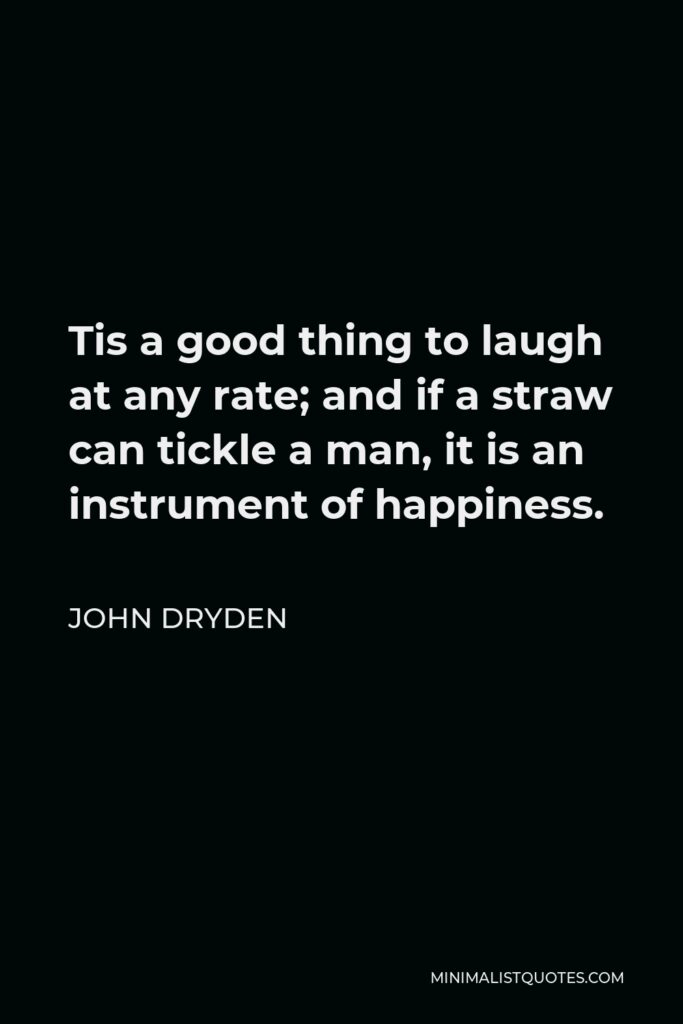

Tis a good thing to laugh at any rate; and if a straw can tickle a man, it is an instrument of happiness.
JOHN DRYDEN -





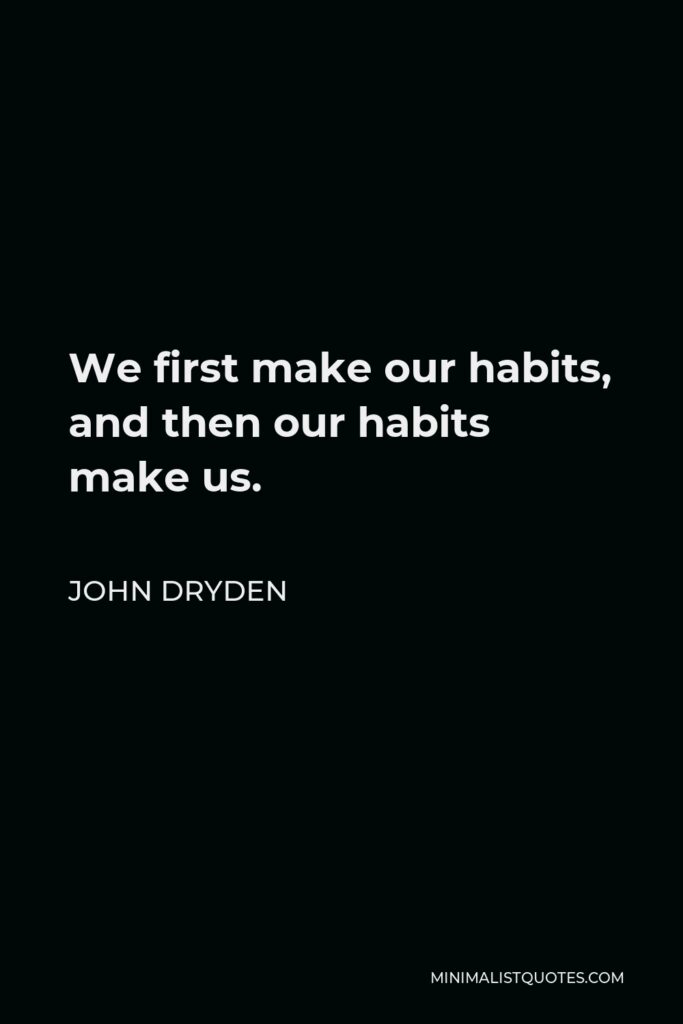

We first make our habits, and then our habits make us.
JOHN DRYDEN -





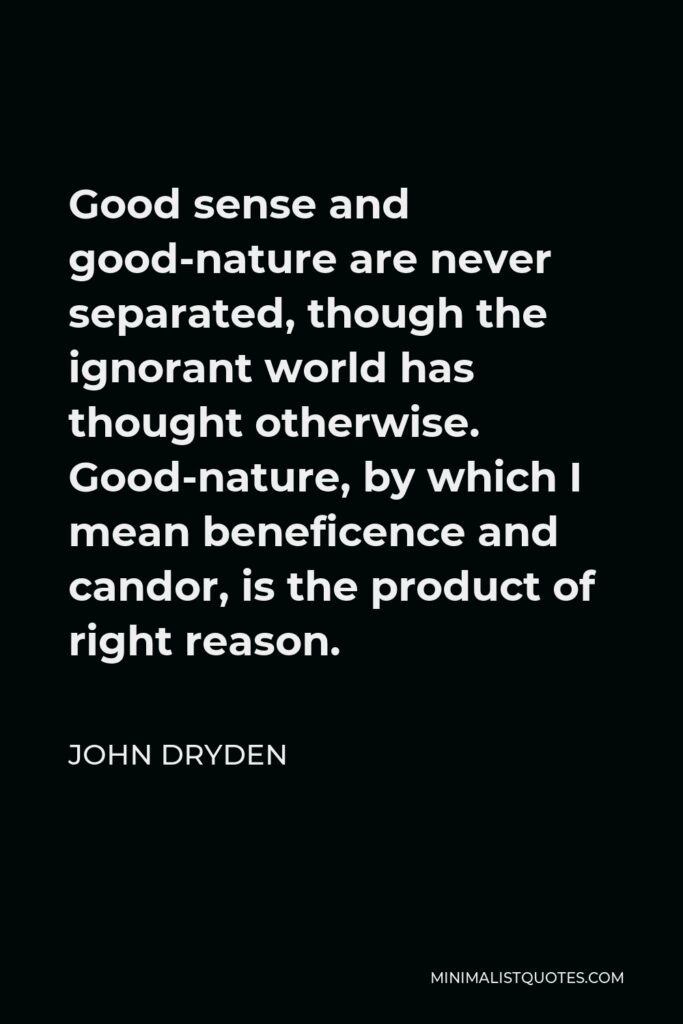

Good sense and good-nature are never separated, though the ignorant world has thought otherwise. Good-nature, by which I mean beneficence and candor, is the product of right reason.
JOHN DRYDEN -





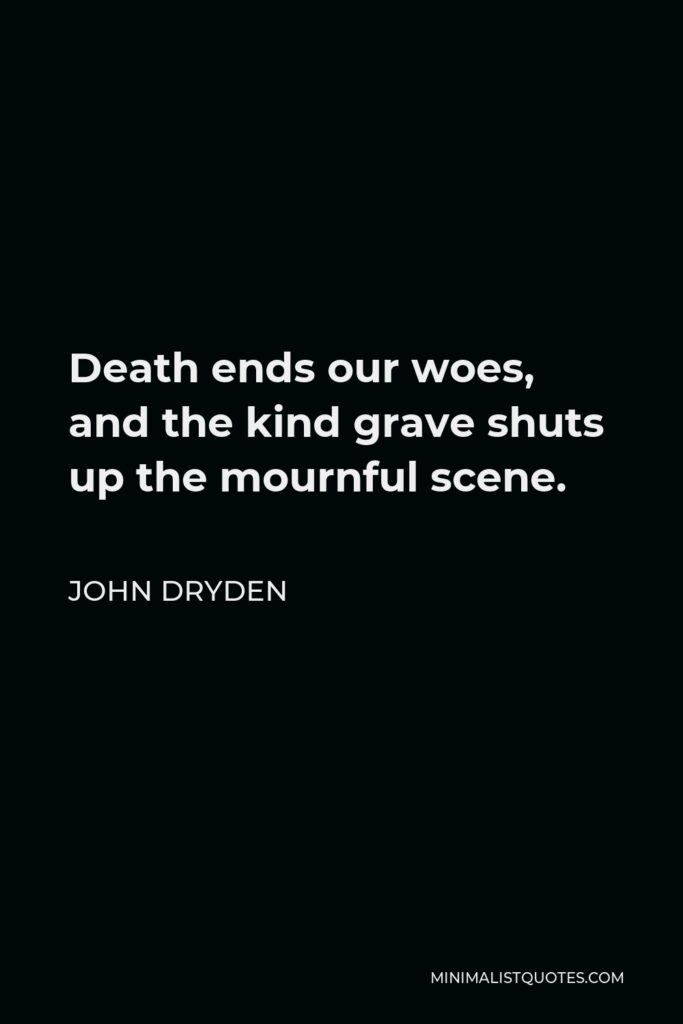

Death ends our woes, and the kind grave shuts up the mournful scene.
JOHN DRYDEN -





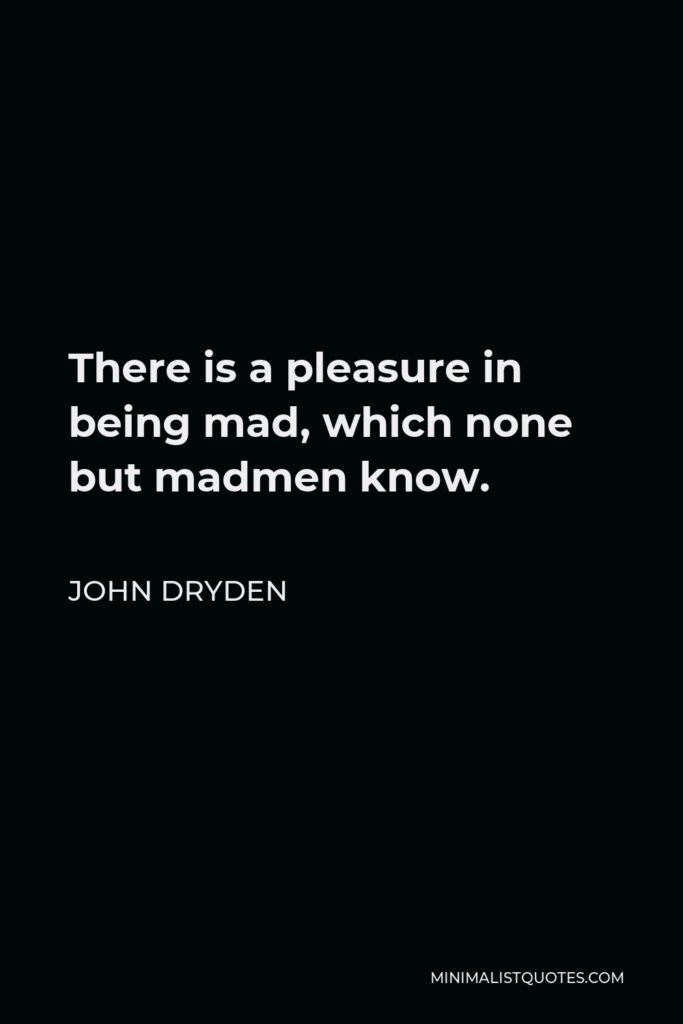

There is a pleasure in being mad, which none but madmen know.
JOHN DRYDEN -







Virtue in distress, and vice in triumph make atheists of mankind.
JOHN DRYDEN -





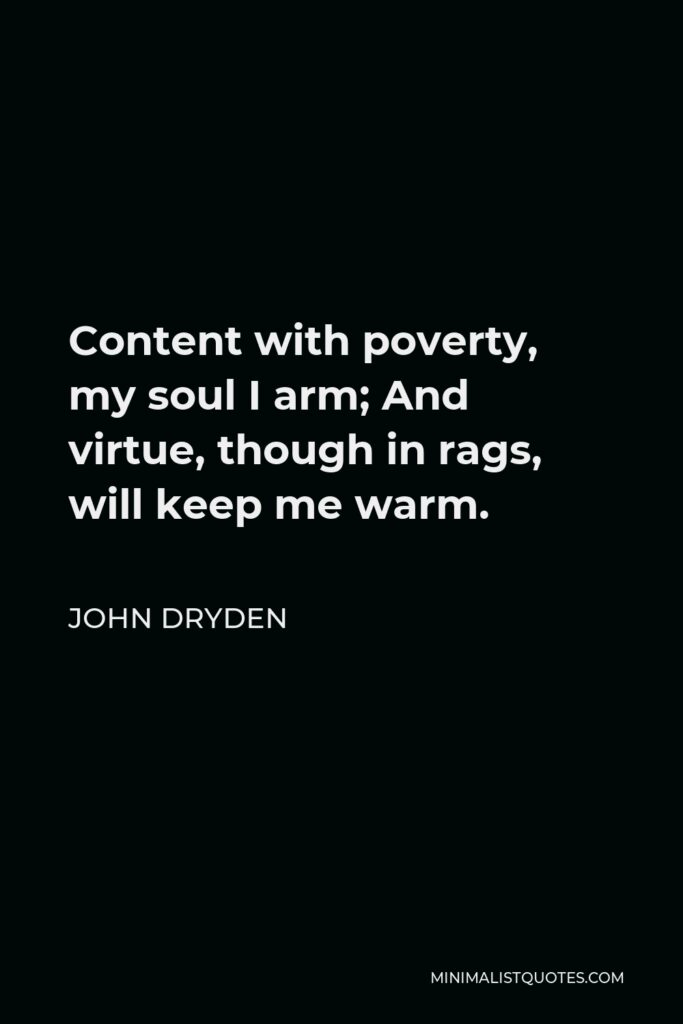

Content with poverty, my soul I arm; And virtue, though in rags, will keep me warm.
JOHN DRYDEN -





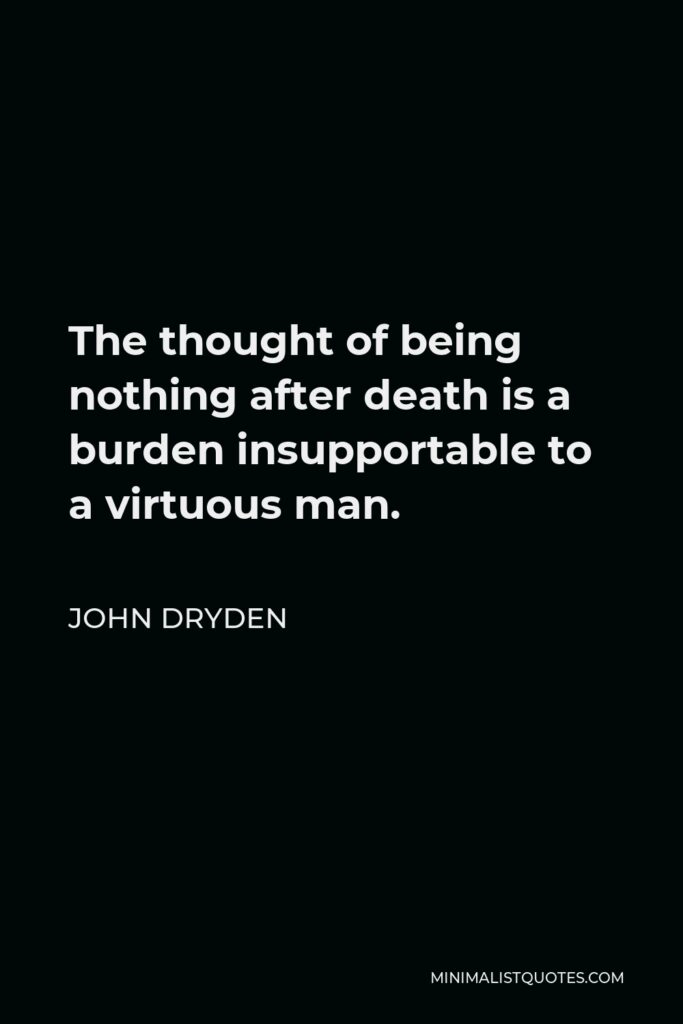

The thought of being nothing after death is a burden insupportable to a virtuous man.
JOHN DRYDEN







